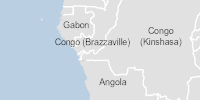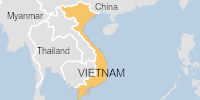RSS feed source: Global Disaster Alert and Coordination Systems (GDACS).
Position Description:
The Department of Mechanical Engineering at McGill University invites applications for two tenure-track positions in Mechanical Engineering, preferably at the Assistant Professor level. The Department is particularly interested in the following areas: Dynamics and Mechatronics and Design for Sustainability.
The Department is committed to excellence in teaching in its undergraduate and graduate programs in Mechanical Engineering and values service contributions of its faculty members to the University, the profession and society at-large.
Qualifications and Education Requirements:
Candidates must have a Ph.D., preferably with a first degree in Mechanical Engineering, and a strong commitment to excellence in research and teaching. Evidence of outstanding research achievements, or research potential, is essential.
Preferred qualifications include dedication to an environment that supports diversity of population and perspectives; as our students come from a wide range of disciplines, cultures, and backgrounds, we invite candidates to address in
Click this link to continue reading the article on the source website.


